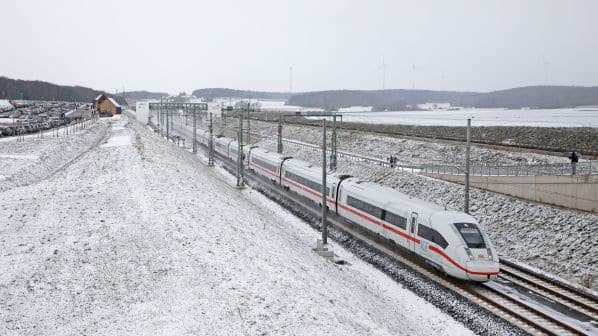THE future loomed large in the conference sessions of the final day of IT-Trans 2024 in Karlsruhe, Germany. The event, supported by the International Association of Public Transport (UITP), was well attended throughout, but many made a beeline to the main conference hall to participate in closing sessions focusing on the future of public transport.
A panel of those working on the frontline of technological advancement, including Transport for London’s (TfL) senior category manager, technology and data, Ms Lucinda Mee, and Alcatel-Lucent’s Ms Fatima Elleouet, gave practical examples of working on connectivity projects that will enable the smart public transport networks of the future.
Their contributions on overseeing the introduction of next-generation communications on the London’s Underground (LU) network and the creation of the driverless Grand Paris Express metro, respectively, gave solid examples of the progress being made in the field and the challenges faced. “How to connect different ecosystems to deliver the right service is a key issue,” Elleouet said.
Public transport of the future would coalesce around the following themes, according to the expert panel:
digitalisation
creating winners through connectivity, and
on-demand travel.
A separate conference session picked up the theme that dominated this year’s event right from the opening session: artificial intelligence (AI). A group of experts, including Paris metro operator RATP’s head of data science, Mr Jérémy Roos, gave practical examples of how AI could create new efficiencies in public transport.
Roos revealed the results of a trial on reducing “overcomfort” on a metro line in France. AI analysed the 70% of trains running nearly empty and removed 1200 round trips per week. The results included a reduction in carbon emissions and a financial saving of €100,000 per week.
However, Roos stressed: “there is a risk of trusting blindly in AI models, which can lead to bad decisions, significant (negative) impact and possible dangerous effects. We need to train people to challenge AI outputs,” he said.
A final word of warning came from Mr Xavier Arafat, founder and CEO of Awaait Artificial Intelligence, who pointed to recent case law on who is responsible for outcomes determined by AI. “We all have to remember that if we use AI in a public-facing setting we are still (legally) responsible for the results – not the artificial intelligence,” he said
The post IT-Trans 2024 News Highlights – Day 3 appeared first on International Railway Journal.

